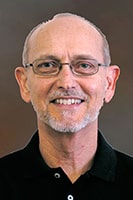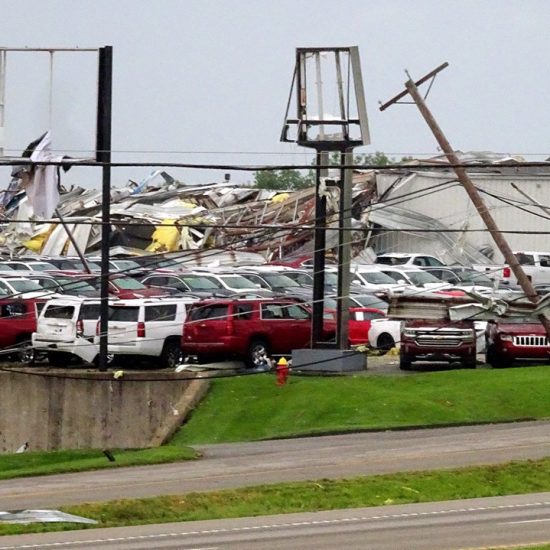The recent passing of astronaut John Glenn has revived interest in our country’s early space flights. I remember as an elementary student being herded into our school library so we could all watch this brave man in an oversized tin can hurtling through the inky black void. Glenn became the first human to ever circle our planet and when he died on December 8, the media began playing recordings of his first communications back to Earth. His voice brimmed with innocence and exuberance, as he uttered the phrase he would repeat frequently during the remainder of his life: “Zero-G, and I feel fine!”
 Now, it’s worth noting that scientists can’t agree on what zero-G (gravity) really is. Is it actual weightlessness or simply the body’s free fall as it orbits Earth? Let me say politely, “Who cares?” I refuse to allow technical details to ruin the analogy I’m creating in this column! Many of our congregations are Earthbound, held down by the gravitational force of sameness, selfishness and fear.
Now, it’s worth noting that scientists can’t agree on what zero-G (gravity) really is. Is it actual weightlessness or simply the body’s free fall as it orbits Earth? Let me say politely, “Who cares?” I refuse to allow technical details to ruin the analogy I’m creating in this column! Many of our congregations are Earthbound, held down by the gravitational force of sameness, selfishness and fear.
The Church’s deep need today is for leaders who will courageously bring us to liftoff and help us break free of “what is” in order to risk zero-G. When we are finally free from Earth’s pull, we might actually trust God’s Spirit in the inky black of “what if?” I’ve visited The St. Louis Science Center in and seen those tiny capsules occupied by some of our space pioneers. Climbing into one of those and being thrust into
space required courage. There were no guaranteed outcomes and very few backup plans. Have you ever climbed into a leadership capsule of a 21st-Century church? You guessed it. There are no guaranteed outcomes and very few backup plans!
To be sure, most of us shun zero-G because we want to stay in control while floating in space; that seems to be opposite of being in control. We even use phrases like “down to earth” and “being well-grounded.” You guessed it. That’s code language for “let’s stay in control.” All the while, communities surrounding our churches are starving for authentic love and Gospel transformation.
May I make a few congregational launch suggestions? First, begin with a season of discernment. This could be a season of prayer, fasting, Bible study and congregational listening. The people of God need to grow quiet and NOT assume we have the answers. Second, consider using an outside consultant. I’m convinced that after we have been in one congregation for more than two or three years, we stop seeing our best opportunities and our worst challenges. We settle in. We see what we expect to
see. Yes, people sometimes resist paying for “an expert with a briefcase 50 miles from home.” But we spend lots of money on church buses, banquets, air conditioning and sound systems. Why not invest in our future? Ask yourself: What will it eventually cost us if we don’t get this right?
Third, the leadership of the church must make it clear that everything — and I mean everything — is open for review and change. No sacred cows. Unless everything is on the table for examination, the church is not honestly open to God’s new thing.
Fourth, be patient. Bill Hybels once remarked that the most difficult time in a strategic plan is when we are halfway through. We’ve come too far to turn back, yet we’re too far away from our goal to want to continue. And yet we must persevere.
If we listen carefully to that John Glenn recording beamed back to our planet almost 55 years ago, we can hear a giddiness in his voice, a sort of childlike wonder. As our congregation has moved through a visioning process, some people have assumed that all along I have had preconceived outcomes in mind. On the contrary. I tell them I don’t know where all of this will lead, and it simultaneously frightens and delights me. Zero-G, and I feel fine.
Doyle Sager is senior pastor of First Baptist Church in Jefferson City, Mo.



